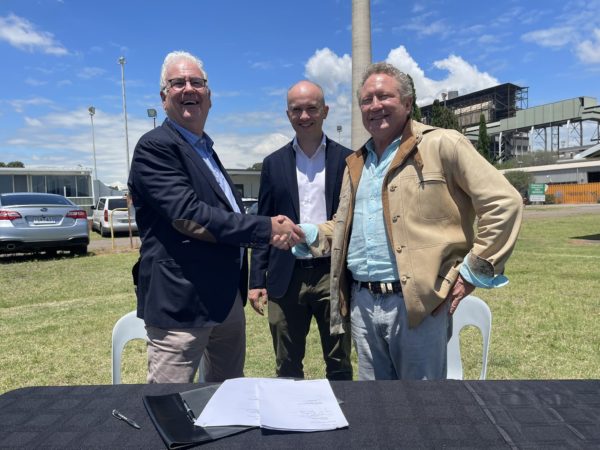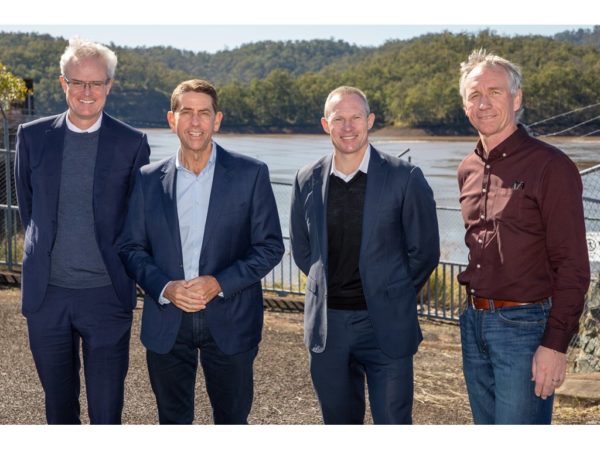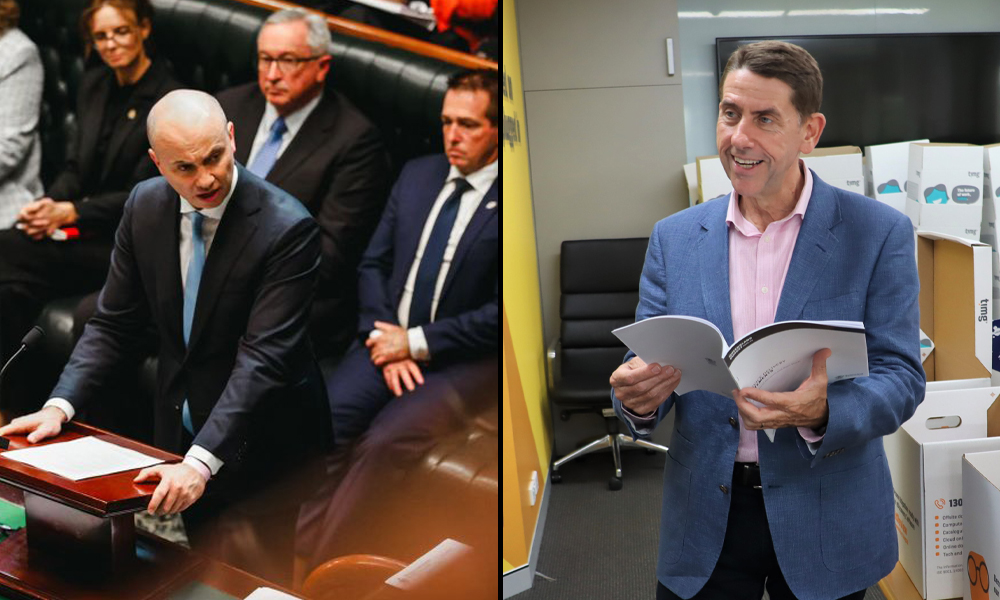Liberal Matt Kean, who become the New South Wales treasurer in 2021 while continuing in his role as energy and environment minister, handed down his first budget yesterday with a strong focus on renewable energy investment alongside other progressive moves, including answering calls for a stronger focus on women.
The NSW government has allocated $1.2 billion to fast-track priority transmission and energy storage projects, an announcement it made earlier this month. It is the state government’s single biggest investment in renewable energy infrastructure to date and the funds aim to unlock massive investments in the electricity system and support the state’s renewable energy zones.
This pledge remains the centrepiece of the budget in terms of energy, though the budget yesterday pledged a further $130 million for a ‘Critical Minerals Activation Fund’ to encourage critical minerals mining for technologies like batteries.

Twitter/Jemma Pepper
There is also a $500 million commitment to deliver on its fast rail vision as well as $218.9 million over the next seven years to support moving its bus fleet to zero emissions technology.
“This investment includes funding of $84 million to enable transition planning, including electrical grid upgrades at 11 Transport for NSW bus depots,” Kean said. “Transitioning the entire fleet of buses will reduce Transport for NSW’s emissions by 78%, reduce noise on our streets, improve air quality and ensure our commuters enjoy a smoother ride,” he added.
Differing starkly from his recently ousted federal colleagues, Kean has spoken often and openly about the importance of sustainability, saying the Liberal party’s conservative tendency should refer not simply to economic and cultural conservatism but environmental conservation.
“We are on track to reduce our emissions by 50% by 2030, on 2005 levels, and to achieve net zero emissions by 2050,” Kean said.
“These commitments are not just about avoiding more record bushfires, droughts and floods, but also about underwriting our prosperity as our trading partners go to the green goods of the future.”
Queensland budget
Queensland’s Labor government has also linked the energy transition to prosperity, with treasurer Cameron Dick saying the budget “backs Queensland’s position as an energy powerhouse… unlocking our renewable future.”
Most notably, the Queensland budget has upped the royalties it takes from coal companies as prices for fossil fuels soar.
The government’s decade long freeze on coal mining royalty rates ended this year, with the treasurer saying the structure for coal royalties was “not fit for purpose.”
The new increased tax rates are expected to generate $2.6 billion over the next four years.

Image: Supplied
The government has also set aside a total of $48 million to progress two pumped hydro projects, a commitment announced earlier this month.
Just shy of $80 million has been allocated to help diversify the state’s resources sector, which is fossil heavy, moving it towards the new economy minerals sector.
“Exploration is the lifeblood of new resources projects and jobs, and its essential we continue to support exploration, including with free access to first-rate geological data,” Scott Stewart, Queensland’s Minister for Resources said.
In total, the government said its 2022-23 budget delivers more than $2 billion for large-scale storage, renewable energy projects and generation and transmission investment, though this total seems to build on previous pledges and schemes.
An additional $10 million will be invested over two years to support the Queensland Microgrid Pilot Fund, offering regional and remote communities clean energy and independence.
This content is protected by copyright and may not be reused. If you want to cooperate with us and would like to reuse some of our content, please contact: editors@pv-magazine.com.









By submitting this form you agree to pv magazine using your data for the purposes of publishing your comment.
Your personal data will only be disclosed or otherwise transmitted to third parties for the purposes of spam filtering or if this is necessary for technical maintenance of the website. Any other transfer to third parties will not take place unless this is justified on the basis of applicable data protection regulations or if pv magazine is legally obliged to do so.
You may revoke this consent at any time with effect for the future, in which case your personal data will be deleted immediately. Otherwise, your data will be deleted if pv magazine has processed your request or the purpose of data storage is fulfilled.
Further information on data privacy can be found in our Data Protection Policy.